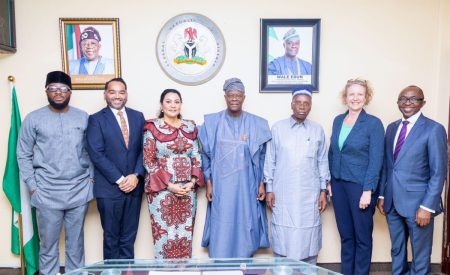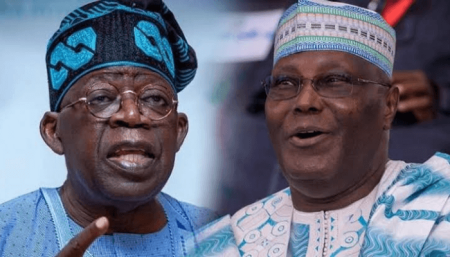 03 June 2013, Sweetcrude/African Press Organization, APO, ADDIS ABABA, Ethiopia — The High Level Panel on Illicit Financial Flows, IFF, has concluded a three-day consultation with a wide range of stakeholders in Nigeria, aimed at a better understanding of the damaging effects of illicit financial flows on the development of the Nigerian economy.
03 June 2013, Sweetcrude/African Press Organization, APO, ADDIS ABABA, Ethiopia — The High Level Panel on Illicit Financial Flows, IFF, has concluded a three-day consultation with a wide range of stakeholders in Nigeria, aimed at a better understanding of the damaging effects of illicit financial flows on the development of the Nigerian economy.
The consultations also focused on the main challenges in addressing the problem of IFF in Nigeria, the country’s institutional and policy responses to the challenge of illicit outflows of resources and the efficacy of those responses.
Nigeria is one of seven-country case studies being conducted on illicit financial outflows from Africa in preparation for a comprehensive report, which will contain the recommendations of the Panel. The report will address ways of strengthening Africa’s responses to illicit financial flows from the continent. The other six countries are Algeria, Democratic Republic of Congo, Kenya, Liberia, Mozambique, and South Africa.
At the invitation of Nigeria’s President, Goodluck Jonathan, the High Level Panel, led by Mr. Thabo Mbeki, former President of South Africa held meetings with the President, Ministers, and other representatives of the executive, legislature and agencies of government in Abuja on 20-21 May 2013. This was followed by meetings with various stakeholders, including the civil society and the private sector in Lagos on the 22nd of May.
It is expected that the HLP’s consultations will play a critical role in determining the appropriate policy options and recommendations on how to effectively address the problem of IFF in the country and the role the different internal, external, state and non-state institutions, actors, agencies and stakeholders can play in solving the problem. This will ensure that the report of the Panel includes specific information to support actionable recommendations to national governments and other stakeholders on addressing the impacts of IFF.
It is estimated in a report by the Economic Commission for Africa (ECA) that up to US $50 billion flows out of Africa illicitly each year, which is about double the amount of aid that Africa receives. The report examines the magnitude and developmental challenges of illicit financial flows from Africa and addresses cross-border transfers of illicit money stemming from corporate and criminal activities and bribery and theft by government officials. According to the ECA, illicit flows have detrimental impact on Africa’s development and governance. The High Level Panel on Illicit Financial Flows from Africa was established by the ECA and was inaugurated on 5 February 2012 in Johannesburg, South Africa.
Illicit financial outflows stifle Africa’s socio-economic progress, drains scarce foreign exchange resources, reduces government tax revenues, increases corruption, aggravates foreign debt and increases Africa’s economic dependency. The governance challenges of IFF include weakening public institutions and domestic private sector development; as well as reduction in the capacity of the state to provide public goods and services to improve people’s welfare.
Other High Level Panel members in attendance were: Mr. Segun Apata, Mr. Raymond Baker, Ms. Zainab Elbakri and Mr. Abdalla Hamdok, Deputy Executive Secretary and Chair of the ECA Technical Committee for the IFF programme. Mr. Emmanuel Nnadozie, Head of the Secretariat of the Technical Committee for the IFF and Ms. Mojanku Gumbi, Member of the Secretariat of the Technical Committee for the IFF programme also took part in the consultation in Nigeria.



